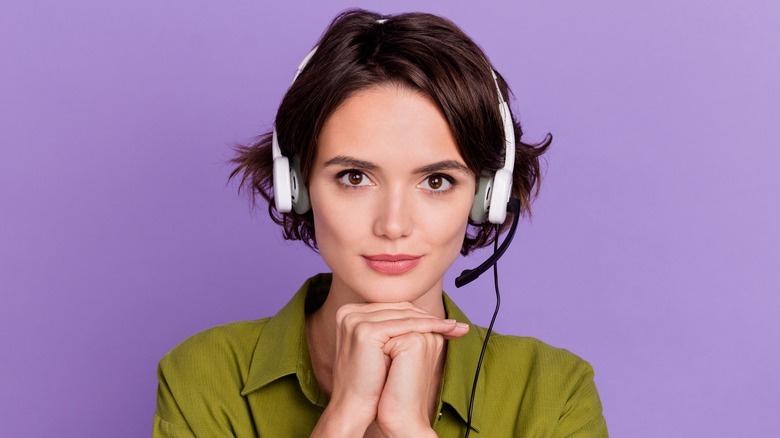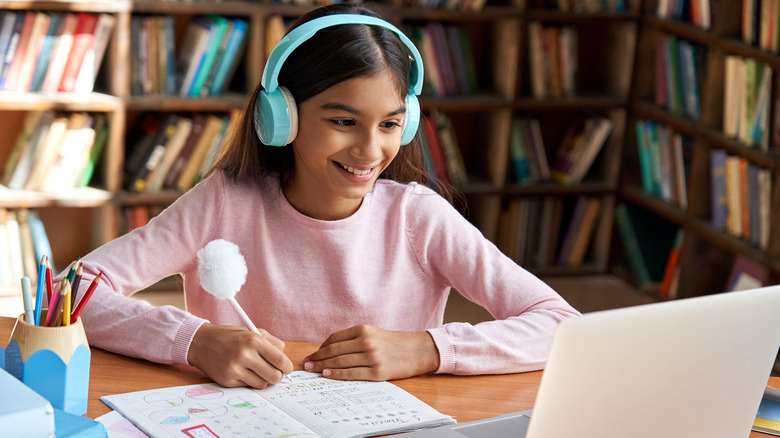An Alarming Amount Of People At Risk Of Hearing Loss From Headphones
Thanks to technology, most of us live in a rich inner world that exists beyond reality. We carry these inner worlds in our pockets — to the grocery store, on our daily commute, or just in the comfort of our own homes. Technology has made it possible for us to personalize this alternate reality of apps, websites, and sounds that we're growing increasingly dependent on. "Millennials and boomers are addicted to their phones. Generation Z simply hasn't known a time without the device," MaryLeigh Bliss from research agency Ypulse told Global News Canada.
Our phones are an extension of ourselves, and staying connected is of utmost importance. One way to remain entrenched in our phones is by blocking noise from the world outside — and headphones are one of the most popular ways to do it. But, with the rise of uninhibited screen time — a whopping eight hours for kids and teens, according to the CDC — experts warn that the usage of headphones should still be limited. Osteopathic pediatrician James E. Foy told the American Osteopathic Association that users should cap their headphone usage to an hour a day and keep the volume at 60% of its max or less. "The louder the volume, the shorter your duration should be. At maximum volume, you should listen for only about five minutes a day." However, research has revealed that we're closer to being at risk of hearing loss because of headphones now more than ever.
Excessive headphone usage could lead to hearing loss
According to a study by BMJ Global Health, between 0.67 and 1.35 billion children and young adults could experience hearing loss as a result of excessive headphone usage at high volumes. The study factored unsafe practices as "largely attributable to the use of personal listening devices (PLDs; eg, mobile phones or MP3 players) and/ or from attendance at loud entertainment venues (eg, discotheques, bars, clubs)." The U.S. Centers for Disease Control and Prevention recommends noise levels remain limited to 85 decibels over an 8-hour work day. The study by BMJ Global Health lowers the recommendation to 80 decibels, adding that users shouldn't be listening to 92 decibels of sound for longer than 2.5 hours at a time. As the decibels go higher, you should limit the amount of time you're exposed.
However, the study also revealed that most of us listen at levels as high as 112 decibels with our headphones, and that can lead to long-term hearing loss. Lead study author Lauren Dillard recommends following your headphones' alerts when it comes to unsafe volume levels, turning them down if prompted or listening for less time (via CNN). Ultimately, "Music is a gift to be enjoyed for a lifetime," said De Wet Swanepoel, the editor in chief of the International Journal of Audiology. "The message is to enjoy your music but safely."

